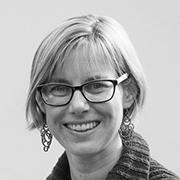A .gov website belongs to an official government organization in the United States.
A lock () or https:// means you've safely connected to the .gov website. Share sensitive information only on official, secure websites.

The Southern Hemisphere contains roughly 10% of the world’s population, more than half of the global area burned by wildfires each year, and a large fraction of the planet's oceans and tropical forests. These features combine to create an atmospheric environment that is markedly different from that in the Northern Hemisphere. Yet despite its unique features, the Southern Hemisphere atmosphere is woefully undersampled – for example, of the 13,250 observation stations included in the comprehensive TOAR tropospheric ozone database, only 1.4% are located south of the equator. As a result, the chemistry and composition of the Southern Hemisphere atmosphere remain poorly understood. In this talk, I will describe how diverse observational datasets from Australia, combined with chemical transport models and satellite data, are shedding new light on lingering uncertainties in Southern Hemisphere atmospheric composition.
Dr. Jenny Fisher is a professor in the Centre for Atmospheric Chemistry at the University of Wollongong. She earned a B.S. in Planetary Science from Caltech, and a Ph.D. from Harvard, where her research focused on atmospheric pollution in the Arctic. She completed a Postdoctoral Fellowship at the University of Wollongong, where she received a L'Oréal-UNESCO Fellowship, before joining the faculty in 2015. Her research at the University of Wollongong focuses on short-lived atmospheric species in the Southern Hemisphere; biogenic emissions and chemistry; and mercury biogeochemistry.
ALL Seminar attendees agree not to cite, quote, copy, or distribute material presented without the explicit written consent of the seminar presenter. Any opinions expressed in this seminar are those of the speaker alone and do not necessarily reflect the opinions of NOAA or CSL.